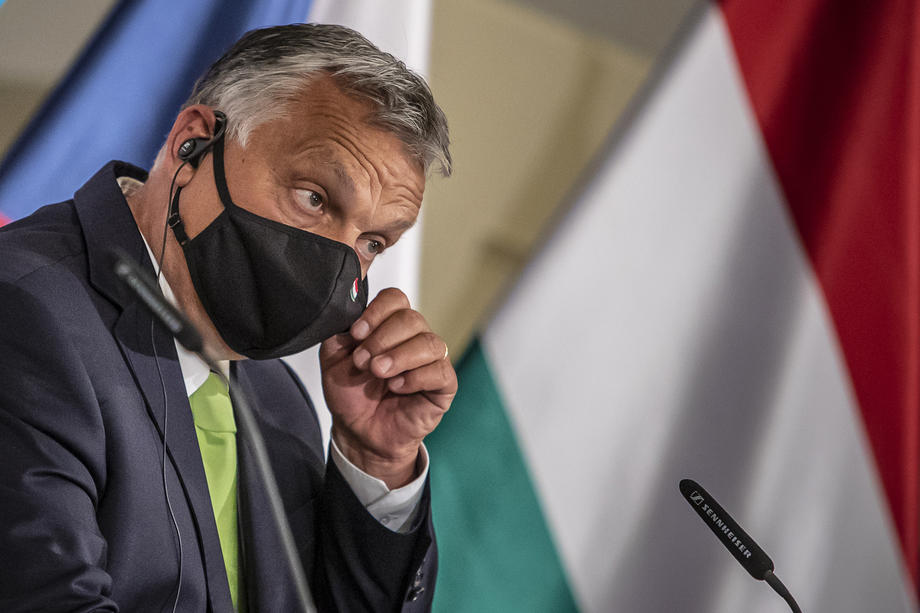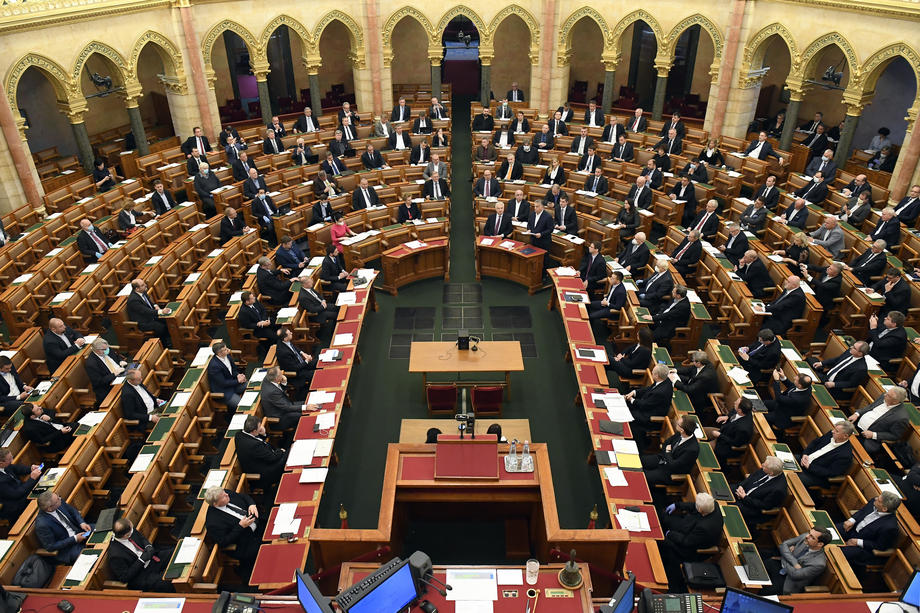At a time of a global health crisis, it is vital that citizens have access to reliable and timely reporting.
Honest and transparent official communication directed towards a vibrant and free media ecosystem could result in a balanced flow of information that raises awareness, increases public trust in the measures aimed to contain the virus, but also points out problems that should be tackled in order to fight the pandemic more efficiently. This, in turn, could literally save lives.
The COVID-19 pandemic, however, pushed many governments in the opposite direction: the virus has been used to implement restrictive measures and to further erode press freedom. In Hungary, the pandemic has highlighted the problems of an already challenging system for journalists, while also introducing new possibilities to withhold information from the public.
Independent questions remain unanswered
The space for independent journalism has been shrinking in Hungary since the current governing party, Fidesz, came to power in 2010. In 2019, almost 78 percent of media were pro-government according to an analysis by media monitor Mérték, while accessing information has become increasingly difficult for independent journalists. Press departments of public institutions typically do not reply to their questions, and their access to the parliament and to press conferences is also restricted.
When the virus hit Hungary in March 2020, access to information was further curtailed. The official channel of communication on all matters related to the pandemic was limited to a daily press conference held online by the surgeon general, with no live audience allowed. Journalists were able to submit their questions prior to the conference via e-mail, but questions from independent outlets are still rarely answered.
The struggle for public information
While journalistic questions are easily ignored by press departments, a powerful tool has remained in the hands of journalists: Freedom of Information (FOI) requests.
Hungary’s law on FOI allows citizens to request data from public authorities about their activities, and also to ask for information about how public money is spent. As a general rule, institutions have to fulfill a FOI request within the shortest possible time, but not exceeding 15 days. An extension of an additional 15 days is allowed in case of a large volume of data.
In practice, however, institutions can avoid answering FOI request in several ways. Requests can be denied, for example, if the information is qualified as personal data, business secrets or classified information. Authorities can also argue that they simply do not possess the requested data, and, since 2015, they also have the right to levy fees if replying to the request involves “a disproportionate amount of work” for their staff.
If a FOI request has been rejected, the decision can only be challenged in court. Such a trial, requiring substantial amount of resources and legal assistance, might drag on for months or even years. Although judges usually favour making the data public, the information might already become irrelevant or outdated by the time it is released.

Hungarian Prime Minister Viktor Orban wears a protective face mask during a press conference. 11 June 2020. EPA-EFE/MARTIN DIVISEK
————————–
Delaying and cherry-picking
Although the fast flow of reliable information is vital during a global pandemic, a Hungarian government decree opened the door for FOI processes to become even more cumbersome. During the state of emergency (lasting until mid-June), Hungarian institutions had a maximum of 90 days instead of 30 to answer FOI requests, in case adhering to the shorter deadline could “endanger the fulfilment of the [relevant institution’s] public tasks in relation to the emergency”.
Based on this possibility, the theatre of Győr (a city in northwest Hungary) extended the deadline of an already ongoing FOI request about the physical conditions of its building to 45 days. But even without a deadline extension, journalists have been struggling to receive complete answers to their FOI requests.
After requesting contracts about ventilator purchases, hvg.hu journalists Babett Oroszi and Judit Windisch received some documents within a 30-day deadline. However, they did not obtain the annexes of the contracts, which would have contained important information, and some of their questions went entirely unanswered.
“In general, I can say that during the pandemic institutions answer FOI requests in a similar way as they had done before: it’s very rare that we get a reply within 15 days. They communicate only what they want, and if we want to dig deeper, institutions do not give a proper answer”, Oroszi explained.
Zoltán Haszán, a journalist with the news website 444.hu, had a similar experience when requesting data on ventilator purchases from the Ministry of Foreign Affairs. Although there would have been a possibility to extend the deadline to 90 days, the ministry answered within 15 days – however, it only replied to some of the questions and completely ignored others.
As Hungary lifted its state of emergency on June 18, the FOI deadline has returned to normal. However, already existing problems prevail. And now, the second, even deadlier wave of the virus is hitting Hungary – further highlighting the urgent need for timely and accurate access to information.
- Click here to read more from IPI’s new reporting series Media Freedom in Europe in the Shadow of Covid




